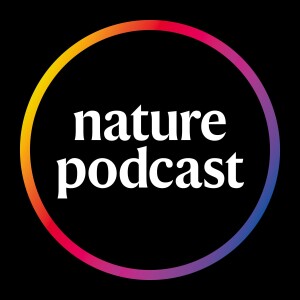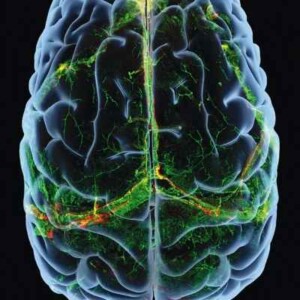As our environments change, so too do the sounds they make — and this change in soundscape can effect us in a whole host of ways, from our wellbeing to the way we think about conservation. In this Podcast Extra we hear from one researcher, Simon Butler, who is combining citizen science data with technology to recreate soundscapes lost to the past. Butler hopes to better understand how soundscapes change in response to changes in the environment, and use this to look forward to the soundscapes of the future.
Nature Communications: Bird population declines and species turnover are changing the acoustic properties of spring soundscapes
Subscribe to Nature Briefing, an unmissable daily round-up of science news, opinion and analysis free in your inbox every weekday.
See acast.com/privacy for privacy and opt-out information.
More Episodes
We could still limit global warming to just 2˚C — but there's an 'if'
 2022-04-20
2022-04-20
Coronapod: Infected immune cells hint at cause of severe COVID
 2022-04-15
2022-04-15
Why do naked mole rats live as long as giraffes?
 2022-04-13
2022-04-13
Five years in the coldest fridge in the known Universe
 2022-04-06
2022-04-06
Audio long-read: A more-inclusive genome project aims to capture all of human diversity
 2022-04-05
2022-04-05
Winding roads could make you a better navigator
 2022-03-30
2022-03-30
Milky Way's origin story revealed by 250,000 stars
 2022-03-23
2022-03-23
Coronapod: How vaccine complacency is plaguing 'COVID zero' strategies
 2022-03-18
2022-03-18
The coin toss of Alzheimer's inheritance
 2022-03-17
2022-03-17
The vest that can hear your heartbeat
 2022-03-16
2022-03-16
The AI that deciphers ancient Greek graffiti
 2022-03-09
2022-03-09
Coronapod: why stopping COVID testing would be a mistake
 2022-03-04
2022-03-04
COVID stimulus spending failed to deliver on climate promises
 2022-03-02
2022-03-02
Audio long-read: The race to save the Internet from quantum hackers
 2022-02-28
2022-02-28
Dinosaur-destroying asteroid struck in spring
 2022-02-23
2022-02-23
Tongan volcano eruption leaves scientists with unanswered questions
 2022-02-16
2022-02-16
Coronapod: How African scientists are copying Moderna's COVID vaccine
 2022-02-11
2022-02-11
RNA test detects deadly pregnancy disorder early
 2022-02-09
2022-02-09
Coronapod: what people get wrong about endemic COVID
 2022-02-04
2022-02-04
Weirdly flowing water finally has an explanation: 'quantum friction'
 2022-02-02
2022-02-02
Create your
podcast in
minutes
- Full-featured podcast site
- Unlimited storage and bandwidth
- Comprehensive podcast stats
- Distribute to Apple Podcasts, Spotify, and more
- Make money with your podcast
It is Free
- Privacy Policy
- Cookie Policy
- Terms of Use
- Consent Preferences
- Copyright © 2015-2024 Podbean.com




 iOS
iOS Android
Android


